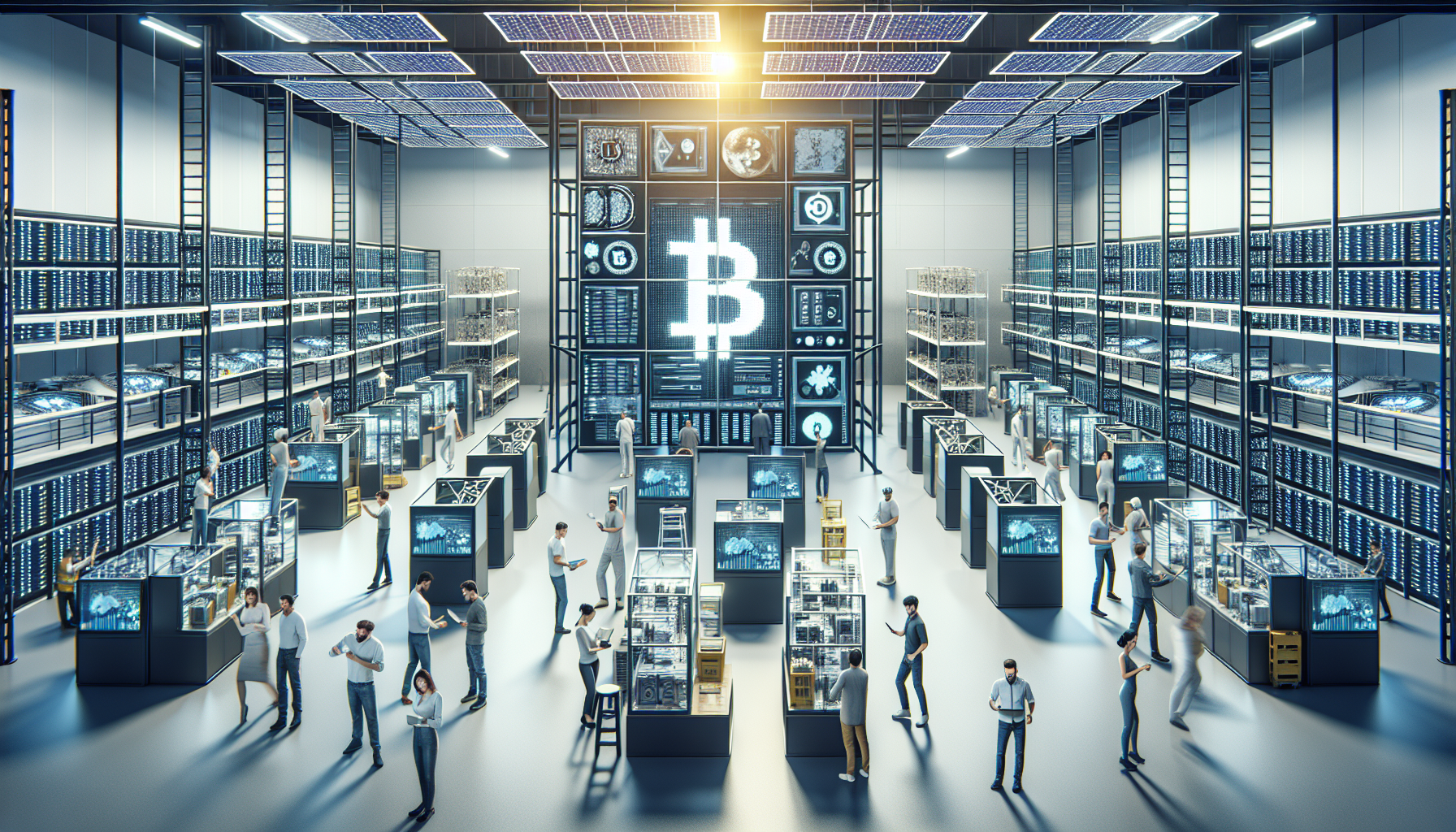
tl;dr
Bitmain, the world's largest ASIC manufacturer, is shifting production to the U.S. to bypass tariffs, address environmental concerns, and tap into the 40% of global Bitcoin hash power in North America. The move includes energy-efficient innovations and partnerships amid fierce competition.
**Bitmain's U.S. Factory: A New Era for Bitcoin Mining?**
In a landmark shift for the Bitcoin mining industry, Bitmain—the world’s leading manufacturer of ASIC hardware—has announced plans to open its first U.S. factory by the end of 2025. This move marks a significant departure from the company’s long-standing reliance on Southeast Asian production facilities, signaling a strategic pivot to address evolving market demands, regulatory challenges, and environmental concerns.
### **A Strategic Shift to the U.S.**
Bitmain, based in Beijing, has traditionally manufactured its popular Antminer series in Southeast Asia. However, the company is now eyeing Texas or Florida as potential locations for its U.S. factory, with operations expected to begin as early as 2026. The decision comes amid growing trade tensions, rising tariffs, and environmental scrutiny, all of which have strained the global mining hardware supply chain.
To accelerate this transition, Bitmain is already hiring 250 local workers to streamline deliveries, enhance repair services, and strengthen its foothold in the U.S., where 40% of the world’s Bitcoin hash power is generated. The move is seen as a response to U.S. trade barriers and the need to cater to a market that demands faster, more reliable access to mining equipment.
### **Tackling Cost and Supply Chain Challenges**
Manufacturing in Southeast Asia has posed significant hurdles for Bitmain. U.S. tariffs on Asian-made hardware have inflated costs by 24–36%, squeezing profits for miners, especially after the Bitcoin halving in April 2024. By producing in the U.S., Bitmain aims to bypass these tariffs, reduce delivery times, and offer localized support, which is critical for a market that drives global mining activity.
Texas and Florida are prime candidates due to their low energy costs, pro-crypto policies, and robust tech ecosystems. This localization also addresses U.S. concerns about Chinese tech firms, including Bitmain’s AI subsidiary, Sophgo, which faces restrictions from the U.S. Commerce Department.
### **Sustainability and Efficiency at the Core**
Bitcoin mining’s environmental impact remains a contentious issue. The industry consumes 187.9 terawatt-hours annually, surpassing the energy use of some nations, and a 2025 Harvard study linked U.S. Bitcoin mining to pollution affecting 1.9 million people. Bitmain is responding with energy-efficient innovations like the **Antminer S23 Hydro**, which achieves 580 TH/s at just 9.5 joules per terahash (J/TH)—a stark improvement over the industry average of 27 J/TH.
The U.S. factory could prioritize such green technologies, leveraging renewable energy and adhering to local regulations. This aligns with growing pressure from regions like Fannin County, Georgia, where mining operations face bans due to noise and environmental concerns.
### **Market Dynamics and Competition**
Bitmain’s move comes amid a rapidly evolving landscape. With Bitcoin prices surging past $120,000 in August 2025 and increased investment in ETFs, demand for efficient mining hardware is surging. Bitmain has already partnered with companies like CleanSpark and Hut 8, offering flexible payment options such as BTC pledges and discounts to attract buyers.
However, competition is intensifying. Block, a rival firm, is set to launch the **Proto ASIC miner**, featuring modular designs that could challenge Bitmain’s dominance. Additionally, AI data centers are vying for cheap energy, forcing Bitmain to secure stable energy partnerships to maintain its edge.
### **The Road Ahead**
Bitmain’s U.S. factory represents both a risk and an opportunity. Success will hinge on its ability to produce cutting-edge ASICs, navigate complex regulations, and meet the needs of a competitive market. If executed well, the move could redefine Bitcoin mining, positioning the U.S. as a cornerstone of the global crypto economy.
As the industry grapples with sustainability, regulation, and innovation, Bitmain’s gamble on domestic manufacturing may set a new standard for efficiency and resilience in the world of Bitcoin mining. Whether it’s a bold step forward or a high-stakes bet, one thing is clear: the U.S. is becoming an increasingly vital player in the ASIC chessboard.